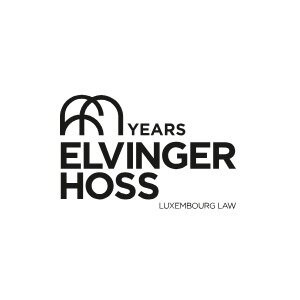Best Project Finance Lawyers in Luxembourg
Share your needs with us, get contacted by law firms.
Free. Takes 2 min.
Or refine your search by selecting a city:
List of the best lawyers in Luxembourg
About Project Finance Law in Luxembourg
Project finance is a key field within Luxembourg's legal and financial landscape, enabling large infrastructure, energy, and industrial projects to secure funding through structured lending. Typically, in project finance, repayment relies on the revenues generated by the project itself, with assets or rights often held by a dedicated project company. Luxembourg’s robust banking sector, investment-friendly regulatory environment, and international reputation make it a preferred location for structuring project finance deals. The legal framework supports a wide range of projects, whether local or international, offering flexibility, strong creditor protection, and sophisticated financial instruments.
Why You May Need a Lawyer
A lawyer specialized in project finance can provide critical guidance through all stages of structuring, negotiating, and executing a project finance deal in Luxembourg. Common situations where legal help is essential include:
- Drafting and negotiating complex finance and security documents
- Structuring joint ventures or consortia with multiple project participants
- Ensuring regulatory compliance with Luxembourg financial laws and EU directives
- Assessing risk allocation among project sponsors, lenders, and contractors
- Dealing with cross-border elements and international investment protection
- Managing insolvency or financial restructuring of project companies
- Advising on tax-efficient structures for your project
Given the considerable size and complexity of project finance transactions, legal advice is crucial to mitigate risks, safeguard your interests, and ensure the project’s long-term viability.
Local Laws Overview
Luxembourg has developed a sophisticated legal infrastructure for project finance, drawing from both national and European Union law. Key aspects include:
- SPVs (Special Purpose Vehicles): Luxembourg law allows the creation of special purpose entities under flexible corporate forms, used to isolate project assets and liabilities.
- Security Mechanisms: The Law of 5 August 2005 on financial collateral arrangements streamlines the creation and enforcement of pledges, benefiting lenders in project finance transactions.
- Banking and Investment Regulations: Luxembourg is home to a large number of international banks and is regulated by the Commission de Surveillance du Secteur Financier (CSSF). Project finance deals must comply with anti-money laundering and investor protection norms.
- Contract Law: Luxembourg contract law is based on the Civil Code, offering parties significant freedom to determine contractual terms, provided public policy is respected.
- Taxation: Luxembourg’s tax regime is attractive for project finance, offering various structures that can optimize project returns, but subject to evolving international tax transparency standards.
- Public-Private Partnerships (PPP): Relevant for infrastructure projects, PPPs are governed by specific laws and procurement rules harmonized with EU standards.
Frequently Asked Questions
What types of projects are commonly financed through project finance in Luxembourg?
Common examples include infrastructure projects such as toll roads, bridges, airports, renewable energy facilities, data centers, and industrial plants, as well as cross-border projects with an international component.
What is the typical structure of a project finance transaction in Luxembourg?
Most transactions involve setting up a Luxembourg-based SPV, which signs the relevant contracts, raises funding from banks or capital markets, and manages the project assets and cash flows.
Who are the main parties involved in a project finance deal?
The key parties usually include sponsors (project owners), lenders, the project company (SPV), contractors, suppliers, and sometimes public authorities, especially in PPPs.
How does Luxembourg law protect lenders in project finance?
Lenders benefit from strong security mechanisms, such as pledges over shares, receivables, and accounts, with simplified enforcement procedures under the 2005 law on financial collateral.
Are there any restrictions on foreign investment in project finance in Luxembourg?
Luxembourg is open to foreign investors, with very few restrictions. However, compliance with anti-money laundering regulations and disclosure requirements is essential.
What tax considerations apply to project finance structures?
Luxembourg offers favorable corporate tax rates, and structures like securitization vehicles and investment funds can offer additional benefits. However, tax treatment depends on each project’s specifics, and guidance from a tax lawyer is advised.
How does Luxembourg handle regulatory compliance in project finance?
Project finance transactions must comply with financial sector regulations overseen by the CSSF, including licensing, reporting, and risk management standards.
Can project finance deals in Luxembourg involve cross-border elements?
Yes, Luxembourg is often chosen as a hub for projects that span multiple countries, benefiting from its double tax treaty network and EU regulatory alignment.
What happens if a project company becomes insolvent?
Luxembourg provides a creditor-friendly legal framework for insolvency, with efficient enforcement of security interests and possibilities for restructuring under court supervision.
How do I choose the right legal advisor for my project finance needs in Luxembourg?
Look for lawyers or firms with proven expertise in project finance, experience with international transactions, financial structuring, and knowledge of the relevant industry sector.
Additional Resources
To learn more about project finance and seek guidance, consider these resources:
- The Commission de Surveillance du Secteur Financier (CSSF) - Luxembourg’s financial regulator
- Chamber of Commerce Luxembourg - Resources and contacts for businesses and investors
- Ministry of Finance Luxembourg - Information on tax and investment rules
- Luxembourg Bankers' Association (ABBL) - Guidance on financial sector practices
- Luxembourg Bar Association (Barreau de Luxembourg) - Directory of licensed lawyers
Next Steps
If you need legal assistance with a project finance matter in Luxembourg, consider taking the following steps:
- Identify the scope and objectives of your project, including participants, location, and financial needs
- Gather any documents or information about the project
- Seek initial consultations with lawyers or law firms specializing in project finance
- Assess their experience, approach, and fee structure
- Engage a legal advisor to guide you through structuring, documentation, negotiation, and regulatory compliance
- Maintain regular communication to address issues as your project progresses
Getting tailored legal advice as early as possible can save time, reduce risks, and ensure your project in Luxembourg is structured for success.
Lawzana helps you find the best lawyers and law firms in Luxembourg through a curated and pre-screened list of qualified legal professionals. Our platform offers rankings and detailed profiles of attorneys and law firms, allowing you to compare based on practice areas, including Project Finance, experience, and client feedback.
Each profile includes a description of the firm's areas of practice, client reviews, team members and partners, year of establishment, spoken languages, office locations, contact information, social media presence, and any published articles or resources. Most firms on our platform speak English and are experienced in both local and international legal matters.
Get a quote from top-rated law firms in Luxembourg — quickly, securely, and without unnecessary hassle.
Disclaimer:
The information provided on this page is for general informational purposes only and does not constitute legal advice. While we strive to ensure the accuracy and relevance of the content, legal information may change over time, and interpretations of the law can vary. You should always consult with a qualified legal professional for advice specific to your situation.
We disclaim all liability for actions taken or not taken based on the content of this page. If you believe any information is incorrect or outdated, please contact us, and we will review and update it where appropriate.
Browse project finance law firms by city in Luxembourg
Refine your search by selecting a city.
















